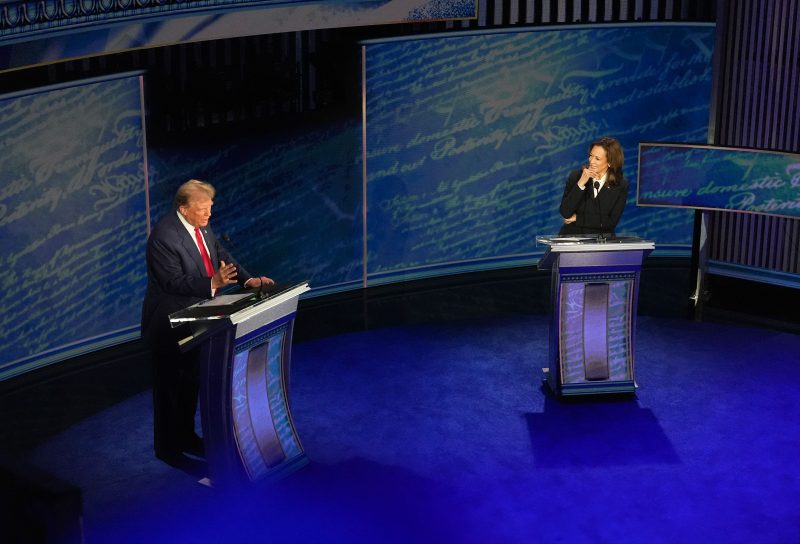In the realm of foreign policy, both Vice President Kamala Harris and former President Donald Trump presented contrasting perspectives during the debate. Their responses shed light on their approach to dealing with international relations, diplomacy, and global challenges. Let’s delve deeper into how each candidate addressed key foreign policy questions and the implications of their stances.
On the topic of Iran, Vice President Harris advocated for reentering the Iran nuclear deal, emphasizing the importance of diplomacy and cooperation with allies to address nuclear proliferation. In contrast, former President Trump highlighted his administration’s decision to withdraw from the deal, citing concerns over Iran’s support for terrorism and destabilizing activities in the region. Harris’s stance reflects a commitment to multilateralism and traditional diplomacy, while Trump’s approach leans more towards unilateral action and a tough stance against perceived threats.
When discussing North Korea, Harris stressed the need for strategic engagement and denuclearization efforts through diplomatic channels. She highlighted the importance of maintaining pressure on North Korea while leaving room for negotiations. In contrast, Trump emphasized his historic meetings with North Korean leader Kim Jong-un as a breakthrough in reducing tensions and promoting denuclearization. While Harris favors a cautious and diplomatic approach, Trump’s unconventional style of engagement with North Korea has yielded mixed results and raised questions about the effectiveness of personal diplomacy in resolving complex issues.
The candidates also offered differing perspectives on China, a crucial player in global geopolitics. Harris emphasized the need for a comprehensive strategy to counter China’s economic and technological influence while upholding human rights and democratic values. She called for a coordinated approach with allies to address human rights abuses, unfair trade practices, and national security concerns linked to China. Trump, on the other hand, highlighted his administration’s tough stance on trade and economic issues with China, including tariffs and sanctions to address unfair trade practices and intellectual property theft. His America First approach prioritized protecting U.S. interests and jobs, even at the expense of strained relations with China.
In the discussions on Russia, Harris emphasized the importance of holding Russia accountable for its interference in elections, cyber warfare, and aggression towards neighbors. She called for a strong stance against Russian aggression while leaving room for strategic dialogue on arms control and mutual interests. Trump highlighted his efforts to improve relations with Russia, emphasizing the potential for cooperation in areas such as counterterrorism and arms control. His approach focused on building a personal rapport with Russian President Vladimir Putin, which raised concerns about his administration’s response to Russian aggression and interference in U.S. elections.
Overall, the foreign policy positions of Vice President Harris and former President Trump reflect contrasting approaches to dealing with global challenges. While Harris advocates for a multilateral and diplomatic strategy that emphasizes cooperation with allies, human rights, and international norms, Trump’s approach prioritizes unilateral actions, personal diplomacy, and a transactional approach to foreign relations. The contrasting perspectives presented during the debate offer voters a clear choice in determining the future direction of U.S. foreign policy and its role in the international arena.
